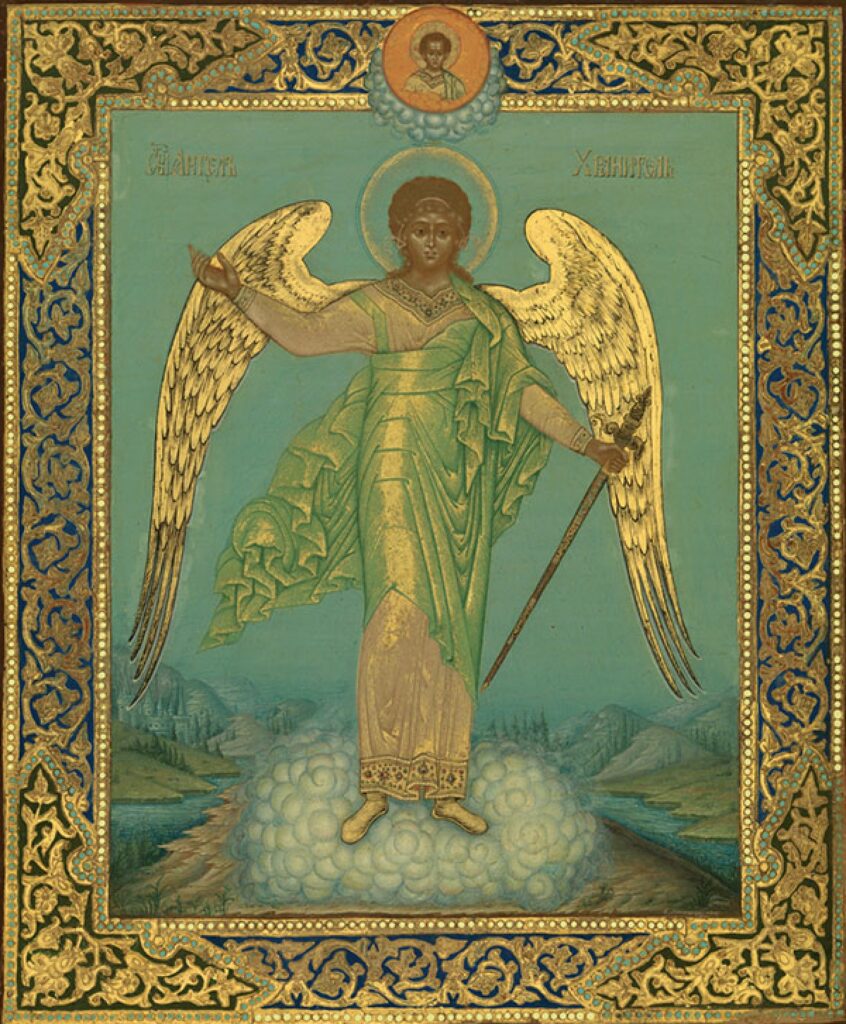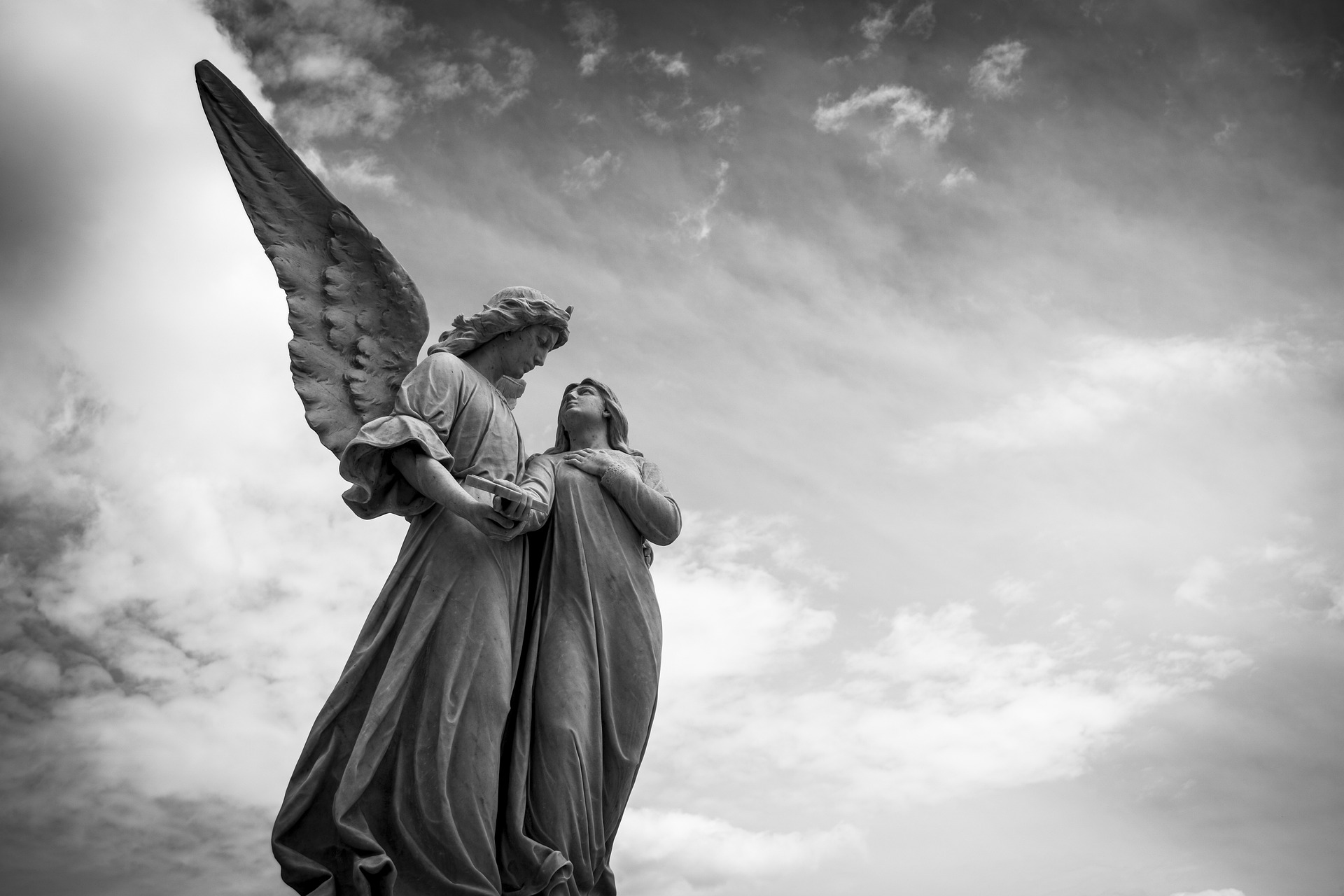Guardian angels occupy a cherished position in Catholic devotion and teaching. Believed to be personal protectors and guides assigned by God, these angels remind us of His loving care for each soul. From the earliest biblical testimonies to the Church’s timeless prayers and feast days, guardian angels embody a spiritual reality that transcends mere sentiment. In an era that craves both meaning and spiritual depth, rediscovering the scriptural and theological foundations of these angelic helpers can strengthen our confidence in God’s steadfast presence.
Let us explore the biblical origins of guardian angels, and review key theological insights from the Early Church Fathers and great Doctors of the Church. Whether you are new to Catholic teaching on angels or simply seeking to renew your devotion, may these reflections draw you closer to the God who “commands His angels concerning you” (cf. Psalm 91:11).
Table of Contents
Biblical Foundations
Old Testament Roots
Scripture presents angels as God’s messengers—intelligent spiritual beings who serve Him by protecting and guiding humanity. One classic Old Testament reference to angelic protection is Psalm 91:11–12, wherein God promises: “For he will command his angels concerning you to guard you in all your ways. On their hands they will bear you up, so that you will not dash your foot against a stone.” From the earliest days of salvation history, angels stand ready to deliver the faithful from harm.
A more detailed glimpse of a personal guardian figure appears in the book of Tobit (Tobit 5–12). The Archangel Raphael accompanies Tobias on a perilous journey, providing guidance, rescuing him from dangers, and ultimately healing his father’s blindness. While Raphael is named an Archangel and not strictly called a “guardian angel,” the text reveals a pattern: God often sends angelic protectors to those who seek Him in faith.
New Testament Witness
Jesus Himself speaks of the angels watching over His followers, particularly in Matthew 18:10: “Take care that you do not despise one of these little ones; for, I tell you, in heaven their angels continually see the face of my Father in heaven” Here Christ implies a closeness between each believer and his or her angel—an angel who can intercede and see God continually. Moreover, in Acts 12:6–16, we read that when St. Peter is miraculously freed from prison, the faithful first assume it is “his angel” knocking at the door. This spontaneous response reflects the early Christian belief in personal angelic guardianship.
Key Observations
- Messenger of Divine Care: Angels stand as vivid signs of God’s providence. Their ministry underscores the goodness of the Creator who watches over each soul.
- Personal and Communal Dimension: While emphasis is often on a “personal guardian,” Scripture also depicts collective angelic protection (e.g., angels serving the Church community).
- Spiritual Warfare Awareness: From Eden to the Apocalypse, angels play a vital role in God’s plan, aiding believers in trials and spiritual battles.

Theological Foundations
Teachings of the Early Church Fathers
From the earliest centuries, Christians have affirmed the ministry of guardian angels. St. Basil the Great taught that each believer is entrusted to an angel who guides us toward virtuous living. St. Jerome similarly wrote that every soul is assigned an angel from baptism onward, highlighting the deeply personal aspect of God’s protective care.
Scholastic Elaboration
Perhaps the most systematic exploration of angels in Latin Christendom comes from St. Thomas Aquinas. In his Summa Theologiae (esp. Part I, Question 113), he discusses how angels, being pure spirits, serve as emissaries of divine providence. Aquinas argues that each person has a distinct angel who offers guidance, protects from harm, and prays for the soul’s salvation. While the entire angelic host works in cooperation for God’s glory, guardian angels stand out for their unique, individual care.
Magisterial Statements and the Catechism
The universal magisterium likewise upholds the doctrine of guardian angels. The Catechism of the Catholic Church (nos. 328–336) details their existence and mission, affirming that angels are servants and messengers of God who minister to each person “from infancy to death.” Official Church teaching thus situates guardian angels firmly within the broader doctrine of angelic beings, revealing a communion of servants who help us on our earthly pilgrimage.
The Role of Guardian Angels in Catholic Tradition
Liturgical Recognition
The Feast of the Holy Guardian Angels on October 2 provides a yearly reminder of the Church’s deep gratitude for angelic guidance. Historically, older missals and certain pre-conciliar references also included special prayers to angels, reflecting the faithful’s devotion. Additionally, the liturgical chants during the Sanctus—often understood to echo the angels’ unending praise—point to the unity of earthly and heavenly worship.
Popular Devotions and Prayers
Countless Catholics learn the “Angel of God” prayer in childhood, a treasured invocation that underscores trust in one’s guardian angel. Other devotions include short chaplets, litanies, or novenas. These prayers emphasize that the Christian is never alone, for God’s spiritual helpers accompany us in joys and sorrows.
Saintly Witnesses and Catholic Legendary Tradition
A recurring thread in saintly biographies is the intimate relationship many had with their guardian angels. Padre Pio famously encouraged the faithful to “send” their guardian angel with requests or intentions. Other legendary anecdotes—though not formally confirmed by the Church—nevertheless testify to how real and immediate the angelic presence can be. The spiritual lesson across these accounts is consistent: angels point us to God, safeguarding both our steps and our souls.
Practical Applications for the Faithful
Cultivating a Personal Relationship
Because guardian angels attend to us with divine charity, we can “converse” with them in prayer. While we never adore angels (for worship belongs to God alone), we properly honor them as fellow creatures who reflect God’s glory. A simple morning invocation— “Guardian Angel, guide my thoughts, words, and actions”—can orient our hearts toward God from the day’s start.
Guardian Angels and Spiritual Warfare
Scripture frequently casts angels in the context of spiritual battles (see Revelation 12). Ephesians 6 exhorts believers to “put on the whole armor of God,” acknowledging that our adversaries operate in unseen realms. Guardian angels remind us we do not fight alone. Whether wrestling with temptation or fear, we can call on the angel’s aid for clarity of mind, courage, and perseverance in grace.
Devotional Tips
- Teach Children: Introducing the simple “Angel of God” prayer or biblical angel stories can help children feel safe and loved, instilling reverence for God’s invisible guardians.
- Incorporate into Routines: Short mental reminders or invocations throughout the day foster angelic awareness.
- Engage the Saints’ Example: Drawing on stories of saints who relied upon their angels can energize our own sense of spiritual accompaniment.

Addressing Modern Skepticism
Rational and Faith Perspectives
The modern, scientific mind may balk at the notion of non-physical beings. Yet Catholic tradition understands angels not as myth in a reductionist sense, but as personal realities within God’s cosmic plan. Faith and reason need not conflict, for angels belong to the supernatural order. As God is beyond full comprehension, so too is His invisible creation.
Harmony with a Scientific Outlook
Properly understood, beliefs about angels and the spiritual realm do not nullify scientific inquiry—just as a painter working on a masterpiece does not contradict the laws of nature. In the Catholic view, creation is layered: there is a material dimension revealed by science and a spiritual dimension accessed by faith. The two are not mutually exclusive but complementary facets of a unified reality.
Conclusion
From Scripture to Church doctrine, guardian angels clearly stand among God’s myriad gifts to humanity. Far from a quaint tradition, their ministry testifies to the immensity of divine love for each person. They shield us in danger, prompt us to virtue, and encourage us on our path toward eternal life.
In times of isolation or turmoil, reflecting on the presence of a guardian angel can renew your confidence in the Lord. Far from feeling alone, you realize that heaven itself accompanies and prays for you. Cultivating a deeper devotion to your guardian angel—through morning prayers, a monthly devotion, or a special feast day celebration—can help root your life in the consoling reality of God’s abiding providence. Together, let us thank God for the blessing of the guardian angels, whose care and guidance make the journey of faith all the more secure and grace-filled.



